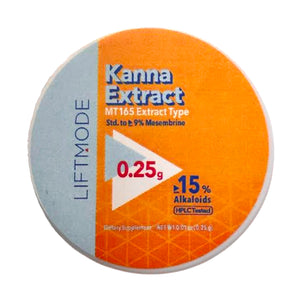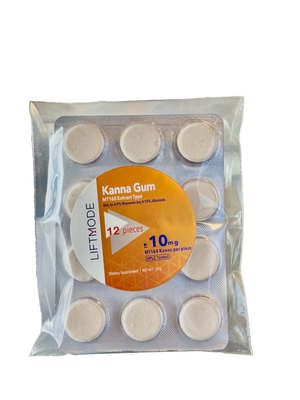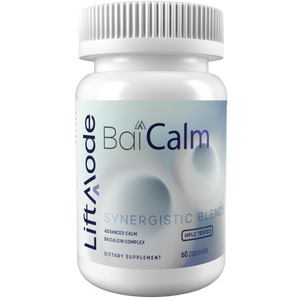Losing sleep can affect us more than we think. Try these hacks to get your snooze on! Today sleep has become a very underestimated commodity. Too often, the one thing people skimp on is sleep –even the healthy green smoothie drinking, soul cycling yogis! No wonder so many people are wondering how to fall asleep fast. According to sleep neurologists, lack of sleep may affect us more than we think. In fact, too little sleep has been found to negatively impact our reproductive, cardiovascular, and immune health. [1]
What’s more, is the lack of sleep can lead to memory impairment and inability to focus. Researchers found individuals on few hours of sleep didn’t perform as well on challenging mental tasks compared to those who got seven hours of sleep a night.[2] It even affects our mood and grasp of social cues – making you more irritable, anxious, and uncomfortable in social settings. [3] Losing sleep may even change the quality and quantity of what you eat. Scientists found those who don’t get quality sleep are more inclined to eat junk foods than those who got adequate sleep – sleep deprivation increases ghrelin, the hunger hormone.[4] Simply put, a person on no sleep is not a happy person. But rest assured sleepy face, we’ve gathered some of the best hacks to get you snoozing in no time!
-
Your Room is a Temple: Keep the Noise and Mess out
We’d say this one is the most important hacks... When learning how to fall asleep quickly. If you want to fall asleep faster, your room needs to be set up it. You know how they say preparation is the key to success. Well so is preparation for sleep. Much of what wreaks havoc on our sleep is sitting right in front of us. The clutter, the lights, and the noise. So make it your sanctuary –your bed is meant for rest and chillaxing. Keep the TV, tablets, computers, and smartphones out of the equation. To make your room even more “zen”, you can try some of these useful tips:
- Blue Light. Natural light from the sun regulates sleep patterns, referred to as circadian rhythms. Artificial light like blue light, LEDs, and incandescent bulbs disturb these rhythms by blocking the production of melatonin, the hormone synthesized in the brain responsible for stimulating sleep. [5]
- To counter the effects of blue light, we recommend to: a. unplug 2 hours before bed; b. spend more time outdoors – the sun regulates circadian rhythms and boosts melatonin;[6] change the light bulbs in your bedroom to red spectrum light – it’s been shown to enhance deep sleep; [7] d. try blue light blocking glasses and download apps like f.lux – it moderates lighting in devices based on geolocation.
Also, try using blackout curtains, they can do wonders for your sleep.
- Clutter: When your room is messy so is your mind. People living in messy bedrooms were found to take longer to fall asleep than those with tidy spaces.
- Noise: As much as we’d all love to live near the woods or the mountains, most of us reside in loud neighborhoods. Although we can’t magically eliminate street sounds or chose our neighbors, we can control our space. Pro Tip: keep a pair of earplugs handy!
-
Have Regular Sleep Habits and Times
Many sleep physicians suggest a consistent sleep routine helps to regulate circadian rhythms. This means you go to bed and wake up at around the same time every day, even on weekends.[8] Though sleep requirements vary by age, pregnancy, and health status, most healthy adults need between 7-9 hours to function.[9] Your sleep window also varies on your chronotype –as in some function better in the early morning, and for some, night time is when they get their best work done. Follow your own intuition and rhythm, just make sure you get enough hours in.
-
Stay Cool and Covered
According to scientists, the temperature of the room strongly influences the quality of our sleep. Temperatures above 24°C or 71°F were found to cause restlessness, increase wakefulness, and decrease REM sleep, whereas cooler environments with proper beddings encouraged restful sleep. [10] The sweet spot for optimal sleep is between 16-18°C (60-65°F). Anything under 12°C (53°F) makes it hard to fall asleep. [11] This is because your body temperature decreases when you’re sleeping. Thus, sleeping semi-nude or in a cooler environment facilitates this process. Let’s not forget our feet: the extremities of the body, the feet, and hands, regulate body temperature. For optimal sleep, pull your feet out of the cover or wear socks to bed, depending on how hot or cold you’re feeling. [12]
-
Clear your mind
Keep a journal near your bed and jot down anything you need to get done. Putting your thoughts on paper seems to have a clearing effect. It means they’re held for safe-keeping and can be dealt with in the morning. Another great habit is practicing deep breathing exercises. Deep breathing increases oxygen levels in your brain. This activates the parasympathetic system and induces a relaxed state.[13] Next time you can’t sleep, try this technique: inhale for a count of four seconds, hold the breath for a count of seven seconds, and exhale out for a count of eight seconds.[14]
-
Try Yin Yoga
Our all-time favorite is to practice deep stretching before bed – like a mini yoga session. Wondering how to fall asleep fast - yoga might be a good option! It’s no secret yoga is a natural sleep aid. Research has found that yoga improves mood and overall health, due to its impact on GABA concentrations in the brain, the mood-stabilizing neurotransmitter. [15] Other GABA activators include L-Theanine, Magnolia Bark, Rhodiola rosea, and Magnesium. A few poses that have helped us fall asleep are forward fold, butterfly pose, child’s pose, legs up the wall, supine twists and side bends. Yin yoga, a type of yoga in which postures are held for longer periods of time, is known to lower cortisol levels and activate the parasympathetic response – your body’s rest and digest mechanism, calming the nervous system, setting you up for a restful sleep.[16]
-
Take a warm shower or bath
Scientists have indicated that taking a warm shower or bath before bed helps you fall asleep faster. When you come out of a warm shower or bath, your body temperature drops significantly, which is why you feel cold straight away. This replicates your body’s temperature when it’s asleep (16-18°C) helping you fall asleep faster.
-
Eat healthy and early
Going to bed with too little or too much can disturb your sleep. Eating a balanced meal with some healthy fats is optimal for sleep. Avoid stimulants like coffee or sugar before bed – unless your idea of rest is to bounce off the walls. Eating healthy fats like avocado, fatty fish or nuts balances your blood sugars. This keeps your cravings at bay, making you less likely to wake up for a midnight snack. [17] Dinner time also impacts your sleep quality. The night is when your brain and gastrointestinal tract digest the information and food processed that day. Keep your meal simple and eat 3 hours before bed: your body and mind will love you for it.
-
Avoid stimulants after noon.
If you have difficulty falling asleep or staying asleep, steer clear of caffeine after noon. The effects of caffeine vary from person to person. Physiological factors such as age, health, pregnancy, body weight, and metabolism come into play. Generally speaking, caffeine has a 5 to 6-hour half-life, which is the time it takes your body to eliminate half of the caffeine. This means caffeine can stay in your system for up to 12 hours! [18] If you are sensitive to caffeine, having coffee after noon can turn one sleepless night into a vicious cycle of insomnia. So do yourself a favor, next time you’re falling asleep on your desk, grab a glass of water, stretch, or go for a walk instead.
-
How to Fall Asleep Fast: Exercise is Your Best Friend
One of the easiest ways to help you sleep better is to get moving. As little as 20 to 30 minutes of aerobic exercise can significantly improve the quality of your sleep. Researchers have discovered physical activity regulates circadian rhythms. This is because the heat produced from exercise causes a subsequent drop in temperature, which then leads to sleepiness at night time. What’s more, is the surge of energy and positivity you get from a sweat session. The cause: moving your body releases mood-elevating hormones in the brain called endorphins. The timing of exercise may be relevant for sleep. This varies from person to person. Some say it knocks them out while others get revved up and have trouble falling asleep. Test it out and see how you feel. Just avoid vigorous activity less than an hour before bed. [19] To sum it up, the more you exercise, the better you feel physically and mentally. The more relaxed you are, the better you sleep!
-
Read a book, try herbs or essential oils
If you’re still having trouble falling asleep, try reading a relaxing book while sipping on a cup of valerian or chamomile tea. Or even give our Sleep Stack supplement a go! Additional dietary supplements/herbs for relaxation and sleep:
- Peppermint tea
- Melatonin
- Magnolia Bark Extract
- Magnesium
We also love to add a few drops of lavender essential oil on the pillowcase before going to bed. It has such a warm and fuzzy feel to it. If you’re feeling creative, you can make a DIY lavender sachet. Simply grab a few lavender stems, dry, chop and pack them into a small cloth bag. Leave the sachet under the pillow for a blissful sleep.
To Sum It Up - How to Fall Asleep Quickly:
- Have a consistent sleep routine
- Unplug and unwind 2 hours before bed
- Exercise
- Keep the bedroom cool, clean, dark and void of any devices
- Eat 2-3 hours before bed, ideally a simple to digest meal with a healthy fat
- Use the bedroom for sleep only
- Avoid sugar, caffeine or stimulating activities
- Take magnesium or other listed herbs
- Write a to-do list
We hope this article can help you find calm and serenity, and most importantly give you the sleep you deserve! Can you see the sheep grazing yet? We sure can… Sweet Dreams!




